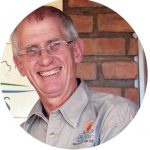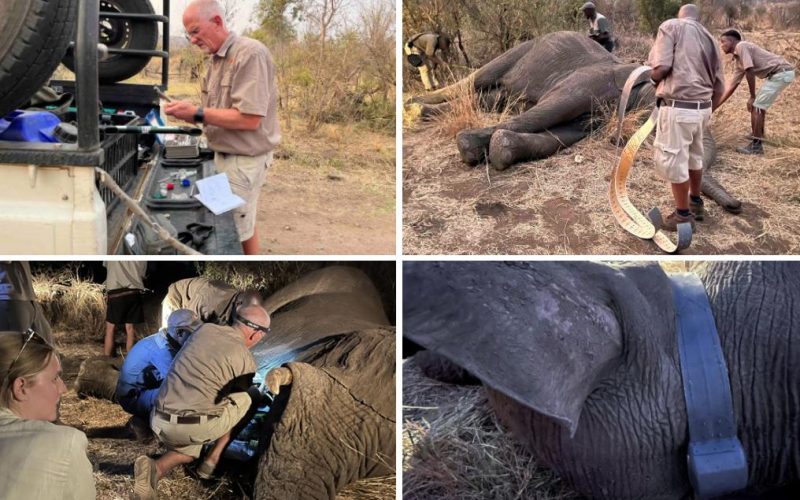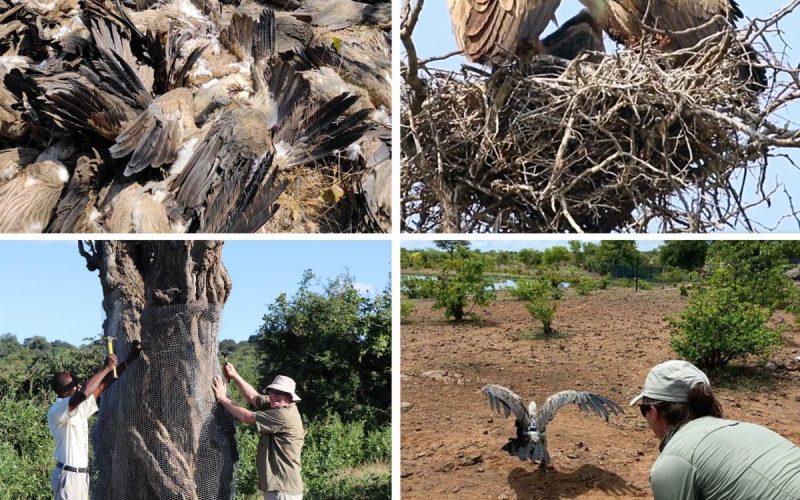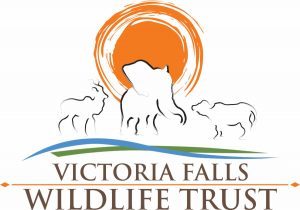Our world is flooded with reasons to be distracted from the real, and most urgent threat humanity faces – intact and healthy ecosystems. To address this, Victoria Falls Wildlife Trust focuses on research that ensures that Zimbabwe’s endangered, iconic species can coexist well and safely with rural communities now and in the future. Not only does this help mitigate the fears inherent in coexisting with large, formidable mammals like elephants and lions, but rural and urban communities now embrace that protecting these species is what sustains us all. After all, the elephant is not visiting the homestead; the homestead is cutting through its path.
I hope you’ll be intrigued and support this research, which is outlined below. It’s a huge, collaborative endeavor that involves international, regional and local partners, government agencies, a volunteer team of field experts, paperwork, expertise, drugs and equipment, vehicles and mileage. Saving wildlife is an expensive endeavor and it’s only through you, our conservation heroes, that this can happen. Many thanks and Happy New Year from all of us at Victoria Falls Wildlife Trust.
For Wild Africa,
Roger Parry

Roger Parry
Wildlife and Research Manager
Lion Research

Victoria Falls Wildlife Trust also uses satellite tracking collars to understand more about the behavioral, movement, and feeding patterns of lions on the periphery of protected areas to predict “hot spots” of conflict. These animals might wander into communal areas – especially as these lions get pushed out by dominant males or established prides.
To prevent these lions from killing livestock, our “Community Guardians” are on duty 24/7. As notifications of movement towards livestock or homesteads ping in from the satellite, our team is deployed to chase the animals away. We also are providing predator-proof mobile bomas to front-line villages that are 100% effective in preventing livestock raiding.
The spatial data collected is also invaluable in identifying new territories and assessing reproductive success. Through this and other important research, we’ve learned that our lion populations are stable and increasing in the region for the first time in more than a decade. You can read more about our lion research here and about Community Guardians and conflict mitigation here.
Elephant Research

The Trust works with Connected Conservation to collar bull elephants that are either known to cause conflict in rural and urban areas or those suspected of becoming brave and problematic. Crop raiding, dangerous encounters, and other challenges can be life-threatening for people and elephants. The selection of bull elephants owes to the fact that bulls are less fearful of people and are not hesitant to come into close contact with humans. They also cover great distances throughout the Kavango–Zambezi Transfrontier Conservation Area that includes Zimbabwe, Zambia, Angola, Botswana, and Namibia.
Ever-increasing over the years, collars offer a long-term monitoring tool that helps us better understand spatial movements, foraging patterns, disease monitoring, and overall behavioral indicators that help us prevent conflict and, ultimately, the removal of the animal. To date, we have collared 20 elephants, of which 10 remain collared and part of our research group. You can read more about our elephant research here.
Vulture Research
Vulture Research

Immune to the very diseases that they encounter, vultures are nature’s janitors. A world without vultures would be overrun with zoonotic pandemics, raging parasites, and carrion-covered landscapes – rural and urban. Vulture populations are declining in shocking numbers throughout Africa because of poaching, poisons, and nesting destruction, and VFWT is proud to lead some of Africa’s most meaningful vulture conservation research. In another conservation collaborative effort with Vulpro, The Trust is fitting rehabilitated birds with tracking devices to learn more about their range, breeding, and feeding behaviors, as well as to be able to react swiftly to any poaching scenarios for which these birds are incredible sentinels.
We also count, monitor, and protect vulture nests in and around Victoria Falls. Vultures mate for life and take up to two years to fledge a chick. If a clutch is destroyed along with a nest, or if one of the pair is poisoned, it could be years before more clutches are laid, if ever. You can read more about our vulture research here.
VICTORIA FALLS WILDLIFE TRUST
PO Box 159, Victoria Falls, Zimbabwe | +263 782 799 006
PO Box 23183, San Diego, CA 92193 | 619-602-1725
9 The Clock Tower, Redlers Waterside, Dudbridge Rd., Stroud GL5 3LH, UK
+44 (0)74 76 227 684
www.vicfallswildlifetrust.org | info@vicfallswildlifetrust.org




